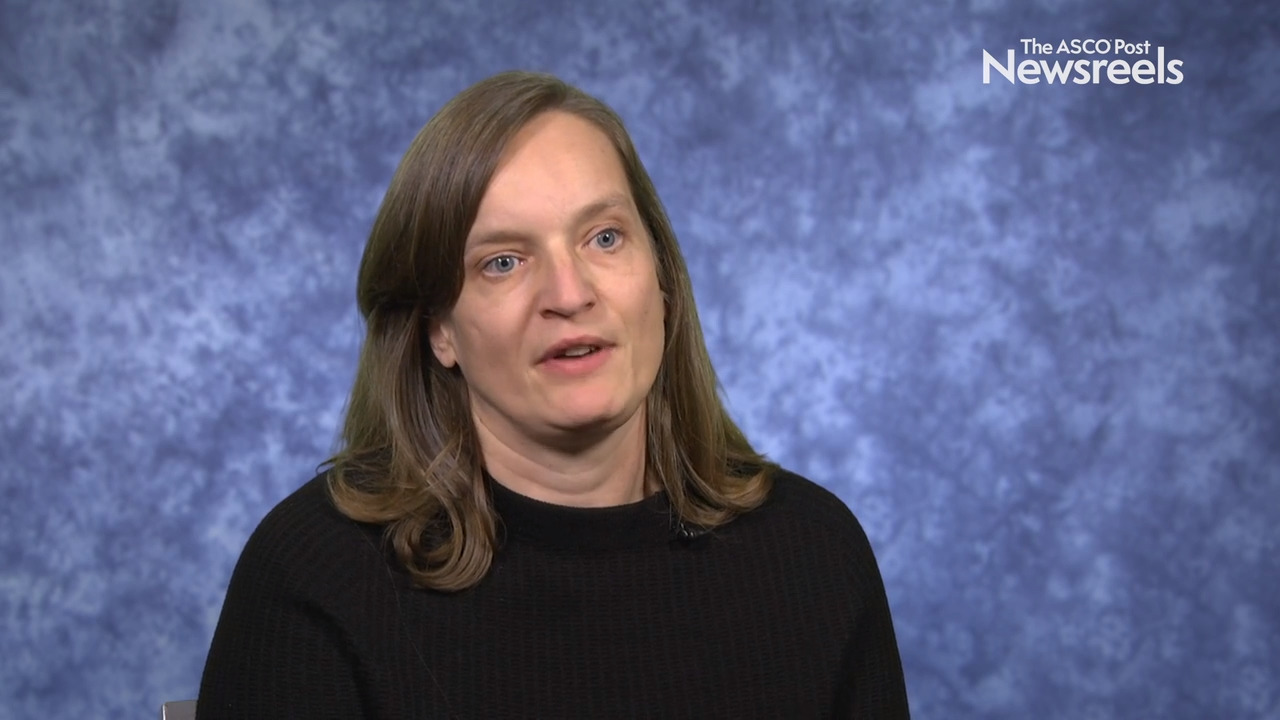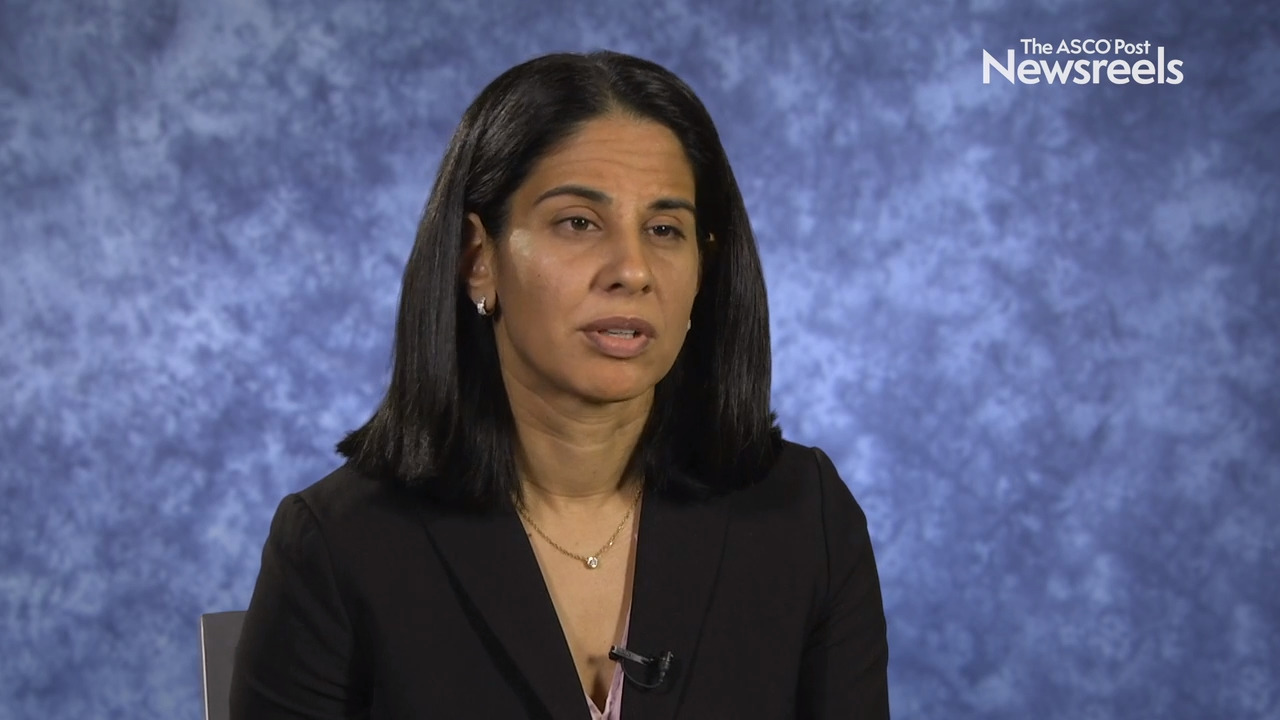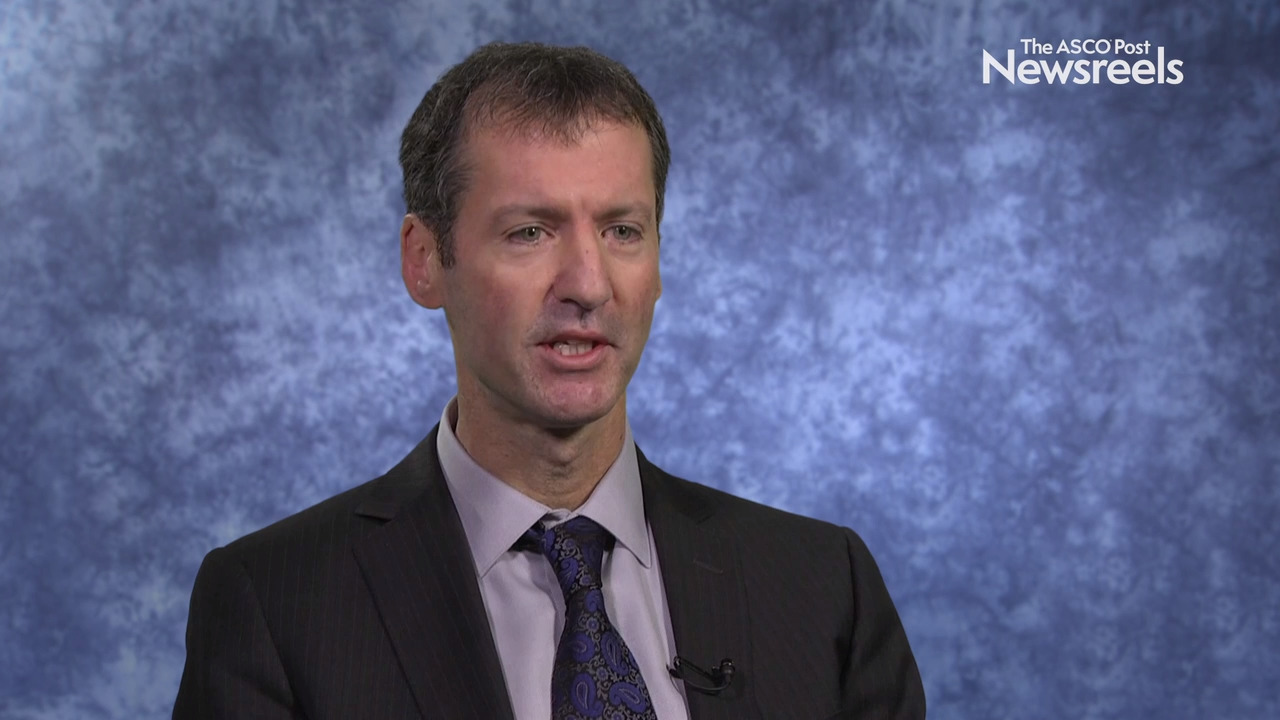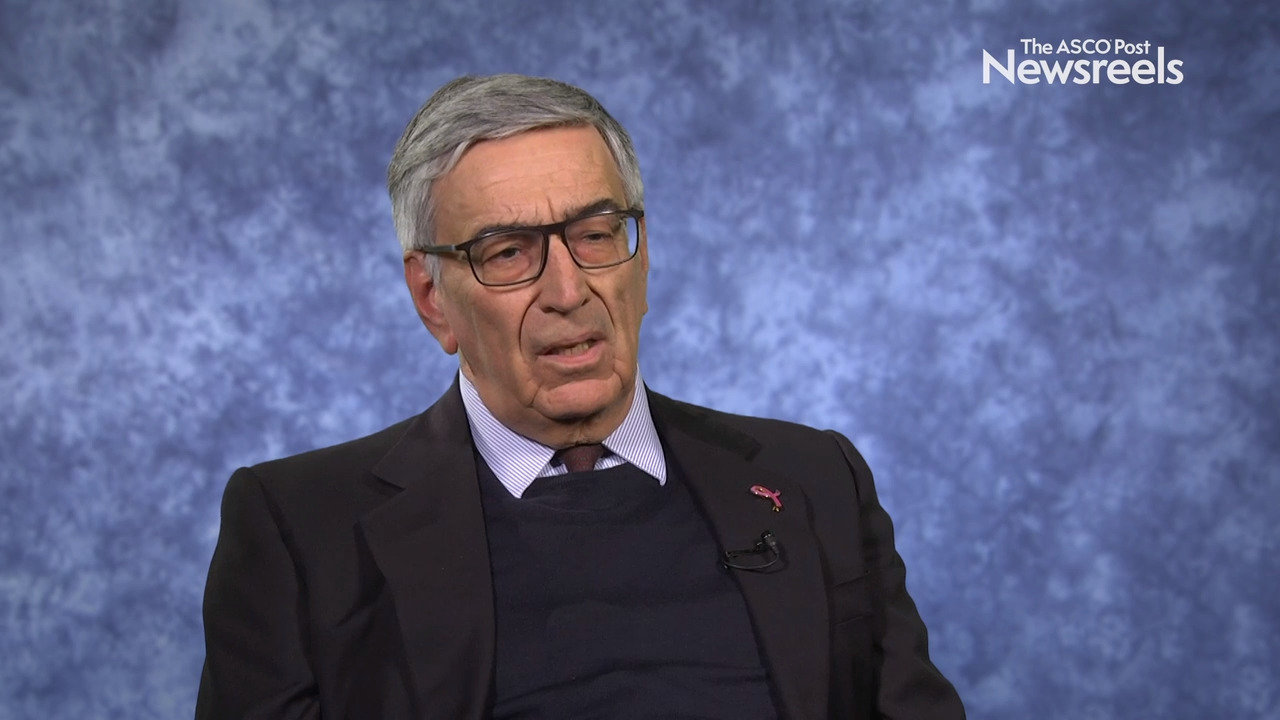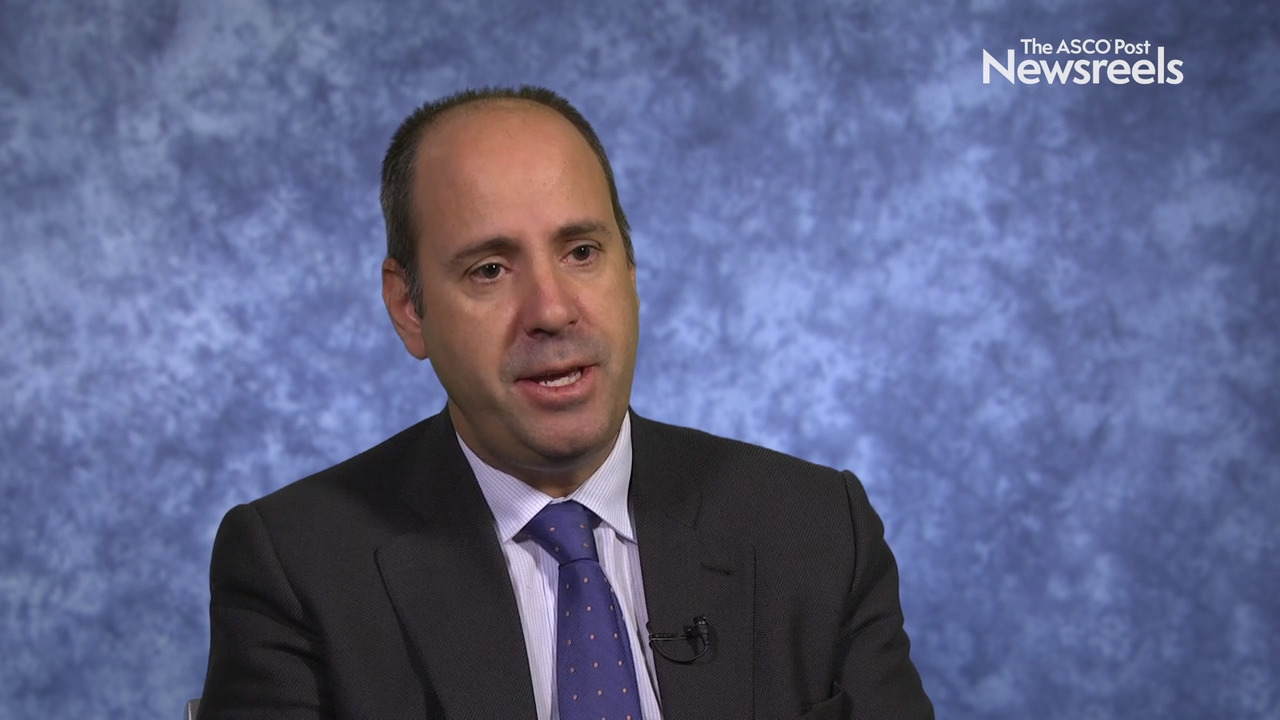Gerardo Antonio Umanzor Funez, MD, on Metastatic Breast Cancer: Comparing IV and Oral Formulations of Paclitaxel
2019 San Antonio Breast Cancer Symposium
Gerardo Antonio Umanzor Funez, MD, of Liga Contra El Cáncer, discusses phase III findings on intravenous (IV) paclitaxel and oral paclitaxel plus encequidar (a novel P-gp inhibitor), the first orally administered taxane regimen shown to be superior to the IV formulation in terms of response and survival with less neuropathy (Abstract GS6-01).
Ivana Sestak, PhD, of Queen Mary University of London and the Centre for Cancer Prevention, discusses study findings that confirm the prognostic ability of the Clinical Treatment Score at 5 years (CTS5) for late distant recurrence, specifically for patients older than 50 years and/or for those deemed to have intermediate- or high-risk hormone receptor–positive, HER2-negative, node-negative breast cancer. The CTS5 is less prognostic in women younger than 50 who received 5 years of endocrine therapy alone (Abstract GS4-03).
Sara M. Tolaney, MD, MPH, of Dana-Farber Cancer Institute, discusses phase II findings on patients receiving T-DM1 monotherapy as adjuvant treatment for stage I HER2-positive breast cancer, a regimen associated with few recurrences in the study population (Abstract GS1-05).
Ian E. Krop, MD, PhD, of Dana-Farber Cancer Institute, discusses phase II trial findings on trastuzumab deruxtecan, a HER2-targeting antibody-drug conjugate, in patients with HER2-positive metastatic breast cancer who were previously treated with trastuzumab emtansine (Abstract GS1-03).
Luca Gianni, MD, of the Fondazione Michelangelo, discusses findings from the NeoTRIP trial on pathologic complete response to neoadjuvant treatment with or without atezolizumab in triple-negative, early high-risk, and locally advanced breast cancer (Abstract GS3-04).
Javier Cortes, MD, PhD, of the IOB Institute of Oncology, discusses study findings that suggested pembrolizumab offered a prolonged survival benefit compared to chemotherapy for a subset of patients with previously treated metastatic triple-negative breast cancer. In the trial, high tumor-infiltrating lymphocytes were significantly associated with better clinical outcomes with the checkpoint inhibitor.
